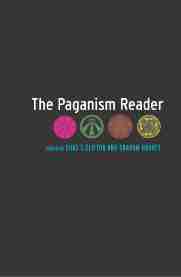Dr. Helen Smith continues blogging on
the problems of dealing with "time bomb" students.
I had one such experience, and it illustrates how difficult it is for universities to deal with them.
She was a "non-traditional" (30-something) student in one of my upper-division nonfiction writing classes. One day she brought in for workshopping an article about Satanists in our city. It was all very 1980s "
satanic panic" stuff, only a decade later.
But the stunning part was that she accused an education professor at our university of being the local Satanic leader. He not only knew where the bodies were buried, she claimed, he had put some of them in the ground himself.
And not one of the mass comm. majors in the room suggested that this might, possibly, be libelous. I suppose they were waiting for me. And I let her go ("Very interesting . . um. . . who's next.") I faced bad writing before, but not 24-caret craziness.
After class I went straight to the office of one of the senior people in my department who mentored me. "What do I do?" I asked her. "Tell [Dept. Chairman]," she said.
I went to his office with a copy of the satanism article. He already knew about the student, knew that she did not have both oars in the water, and that she had been kicked out of the teacher-training program by Education Professor. She had been allowed to change her major to English. He suggested talking to the counseling office, and that was all he could offer.
I ended up in a surreal conversation with the director of student counseling, who was also well-acquainted with Nutcase Student. Her response went something like this:
"Because of privacy rules, I cannot discuss a particular case. However, if I knew that a student was behaving that way, and if I knew that she had a psychiatrist in the city, I might possibly suggest to that psychiatrist that her medications be adjusted."
I called Education Professor at home and got his wife instead. She was seriously concerned that Nutcase Student was stalking her husband and also that he did not recognize the danger. When I spoke to him, he did try to downplay the situation.
Time passed. Nutcase stopped coming to my class, for which I was thankful.
Then I had a call from the provost's secretary. (The provost is the university official in charge of academic affairs.)
It turned out that Nutcase Student had shown up at Education Professor's door about 2 a.m. with a knife. She was arrested and spent some time in jail. All faculty members who had had contact with her were being notified that she was now back on the street. And did I want a university security guard to sit in on my class?
I said no. And Nutcase never returned. But when the call came, it was late afternoon, and I felt very alone in my office on the long, echoing corridor.
She was no
Cho Seung-Hui. But the
pattern was there:
The violence-prone individual is more likely to have enduring personality pathology, such as a paranoid, schizoid, narcissistic, or antisocial personality, and a long history of difficult interpersonal relationships. He may ruminate about perceived slights or injustices for months or even years.The counseling office cannot help someone who does not want help. Faculty members get no more advice beyond, "Be careful." And, ironically, the advent of new psychotropic medications mean that more mentally disturbed people can sign up for higher education. They can get government-guaranteed loans too, just like the rest of the students.
Dr. Helen ends up regarding this as a civil rights issue--for university staff and other students.
Labels: scholarship, teaching
by Nikki Bado-Fralick and Rebecca Sachs Norris, Baylor Univ.

 A telephone call from Graham Harvey on the 9th confirms that our anthology of important Pagan texts is going into production at Routledge. Here is the latest version of the cover--really, Graham's name should come first, as it was his idea to collect important texts from the Pagan revival, reaching back to the Homeric Hymns, the Eddas, the Mabinogion and others, and also collecting such things as Rudyard Kipling's song that begins "Do not tell the priest of our art," from Puck of Pook's Hill, which when I first encountered it was presented to me as a genuine relic of underground Pagan religion! (I had not read that particular book of Kipling's, and I did not know better.)
A telephone call from Graham Harvey on the 9th confirms that our anthology of important Pagan texts is going into production at Routledge. Here is the latest version of the cover--really, Graham's name should come first, as it was his idea to collect important texts from the Pagan revival, reaching back to the Homeric Hymns, the Eddas, the Mabinogion and others, and also collecting such things as Rudyard Kipling's song that begins "Do not tell the priest of our art," from Puck of Pook's Hill, which when I first encountered it was presented to me as a genuine relic of underground Pagan religion! (I had not read that particular book of Kipling's, and I did not know better.)


